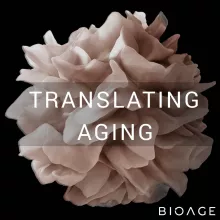Episode shownotes
Joining Chris today is Alex Zhavoronkov, CEO and Co-founder of Insilico Medicine, an artificial intelligence–driven pharma-technology company with a mission to accelerate drug discovery and development. Alex is a lifelong advocate for longevity biotech and the author of The Ageless Generation: How Advances in Biomedicine Will Transform the Global Economy. Today, Alex shares the accomplishments that Insilico Medicine has achieved in drug discovery and how AI and robotics come into play.
The episode begins with Alex narrating his experience in the field of longevity and how his interest developed at a young age. He discusses the reason behind building Insilico Medicine, how AI and robotics aid drug discovery in the longevity industry, and how biology and chemistry play a significant role at Insilico Medicine. The episode ends with Alex describing the future he sees for Insilico Medicine and how they can improve human life using AI to advance drug discovery and data generation.
Episode Highlights:
- What fueled Alex’s interest in longevity
- Building Insilico Medicine
- How tech is used at Insilico Medicine
- The role of AI and robotic systems
- How AI and robotic systems can improve the longevity space
- The future of Insilico Medicine
Quotes:
“It always fascinated me how we grow, mature, reach our peak, and then decline and die. At the end of the day, it doesn't matter what you do, you lose everything… So, the rest of my life is dedicated to aging research.”
“We started generating novel molecular structures with the desired properties, and managed to achieve spectacular results.”
“In human clinical trials, we realized that we can use some incremental data that could be generated using a robotic system. So now we're building one of the most advanced labs in the world focused on data generation, and also personalized medicine that can take in specific biological samples.”
“BioAge is one of the leaders in the space, showcasing that it can identify targets using longitudinal data that is available from biobanks.”
“We trained neural networks to predict age first, and then retrain them on diseases or on other conditions, that is, any data type that is changing in time.”
“By training on age, you are training on the most important feature that connects all of us.”
Links:
Email questions, comments, and feedback to podcast@bioagelabs.com
Translating Aging on Twitter: @bioagepodcast
BIOAGE Labs Website BIOAGELabs.com
BIOAGE Labs Twitter @bioagelabs
BIOAGE Labs LinkedIn
